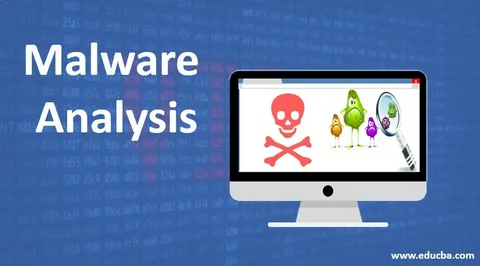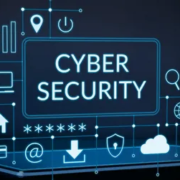What Are Cyber Security Firms and How They Protect Modern Businesses
In our digital-first society, companies rely heavily on technology to run and communicate with their customers, as well as grow. While this dependence on the digital infrastructure can bring the ability to scale globally and efficiency, it also poses a number of security dangers. Cybersecurity threats are growing rapidly, and hackers are targeting businesses of all sizes to snatch data, disrupt operations, or exploit weaknesses. This is why cybersecurity firms play an important role. They specialize in identifying ways to prevent, mitigate, and reduce threats to the digital world and ensuring that businesses are secure in a world in which cyberattacks are becoming more frequent.
Understanding Cyber Security Firms
Cybersecurity companies are specialist companies that offer expert tools and strategies to protect digital assets. Their responsibilities go beyond setting up antivirus software or setting up firewalls. They provide complete solutions to tackle contemporary threats like ransomware, malware, phishing, insider threats, and the latest persistent attack techniques.
Through working with cybersecurity experts, businesses gain access to experts who are able to monitor networks, assess threats, and design strategies to defend themselves. They focus on prevention and response, assisting businesses in reducing the risk before it becomes more severe, and having plans in place for recovery in the event that an incident occurs.
The Importance of Cyber Security for Modern Businesses
Every company, regardless of industry, depends on digital processes and data. Information about customer records, financial records, Intellectual property, customer details, and communications channels is all a prime target for hackers. One breach could result in significant harm not just financially, but also to the company’s image and the trust of its customers.
Cybersecurity companies ensure that businesses are secure. They allow organizations to stay in compliance with industry standards and safeguard against disruptions, and increase their resilience to evolving threats. Without this assistance, numerous companies would be struggling to navigate the cyber world.
Malware Analysis Services

One of the most important services provided by cybersecurity companies includes Malware Analysis Services. Malware refers to malware that is designed to penetrate and harm systems. The malware can be concealed in downloads, email attachments, or even on legitimate websites.
Malware analysis is the process of analyzing suspicious files or actions to identify their motives, behavior, purpose, and impact. By using techniques such as dynamic and static analysis, experts can determine if an application is harmful and the way it functions. This information lets businesses effectively respond by eliminating security threats, patching vulnerabilities, and preventing further attacks. Through the use of malware analysis, businesses can identify infections prior to spreading and cause damage to the entire network.
Penetration Testing Services
Another important service offered by cybersecurity companies is Penetration Testing Services. Also referred to as ethical hacking or penetration testing, this is a simulation of real-world cyberattacks to discover vulnerabilities in a company’s system or applications.
Professionals who have been trained, commonly referred to as penetration testers, employ the same methods that malicious hackers may employ. They try to exploit weaknesses to prove how attackers can gain access. The results will provide businesses with invaluable insight into the effectiveness of their security systems.
In identifying weaknesses before allowing criminals to attack, penetration testing can help businesses strengthen their security, develop patches, and improve their security procedures. The proactive method is among the most efficient ways to protect against potential breaches.
API Testing Services
Modern businesses increasingly depend upon Application Programming Interfaces (APIs) in order to link different applications, as well as share data and provide digital services. Although APIs can enhance their functionality, they also present possible entry points for hackers when they are not secured properly.
API Testing Services offered by cybersecurity companies are focused on ensuring these integrations are secure. The procedure involves testing the authentication and authorization process, as well as data validation and error handling in APIs. By identifying weaknesses, companies can assist businesses to prevent unauthorised access, leaks of data, or service interruptions.
With the growth in cloud computing and mobile apps, and interconnected systems, API security is now a crucial element of overall security. Companies that specialize in API testing ensure that businesses are able to integrate systems without risking security.
Building a Holistic Defense Strategy
Cybersecurity isn’t just concerned with tackling a single issue in isolation. Modern threats usually combine multiple strategies, which makes it crucial for businesses to implement a multi-layered security strategy. Cybersecurity companies combine services such as penetration testing, malware analysis, and API testing into one cohesive strategy.
This holistic approach will ensure that businesses are not just equipped to ward off attacks in the immediate, but are also prepared enough to stand up to advanced attacks in the near future. By combining prevention, detection, and constant monitoring, businesses gain a stronger security system that can adapt to the changing threat landscape.
The Future of Cyber Security Firms
As technology continues to improve Cyber cybersecurity companies will be essential to business resilience. New challenges like deepfake attacks based on artificial intelligence and deepfake manipulation, as well as supply chain vulnerabilities, underscore the need for continuous development.
Companies are already integrating machine learning, automation, and advanced analytics in their offerings to stay on top of the latest developments. For modern businesses, having cybersecurity experts is no longer a luxury but an essential element of operating in a safe digital environment.
Conclusion
Cybersecurity companies are protectors of our digital world, safeguarding businesses from a variety of threats. With services like Malware Analysis Services, Penetration Testing Services as well and API Testing Services, they provide proactive solutions to protect systems, find vulnerabilities, and avoid costly attacks. As cyber-attacks become increasingly sophisticated, the responsibilities of these companies will grow to ensure that businesses are secure in an ever-changing digital world.

